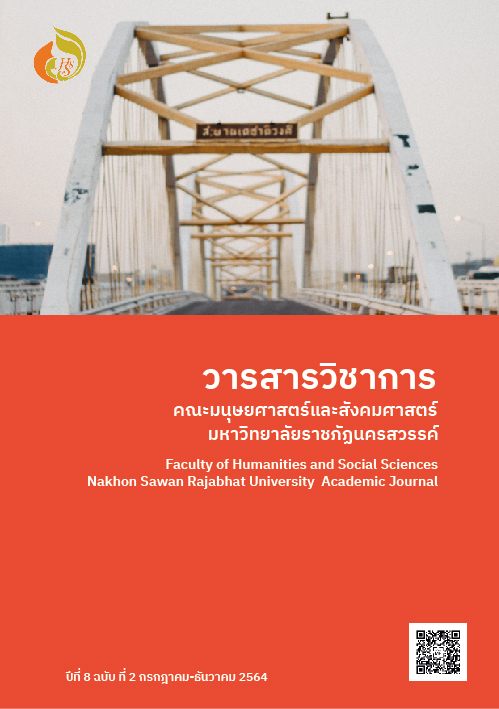Cases Conciliation Issues : Study at the Singburi Provincial Court
Main Article Content
Abstract
The purpose of this independent study are: (1) to study concept, theory, background and meaning of Criminal Cases reconciliation taking place in Thailand. (2) to study the Criminal Cases reconciliation Issues in Thailand and abroad. (3) to study problems and to suggest the solution of the Criminal Cases reconciliation Issues in the Singburi Provincial Court.
This independent study is the qualitative research type through Thai document and Foreign Language document research, text, law, act, sentence, thesis, articles, journal and Qualitative Research electronic media and In-depth interviews whoever involved.
The studying of problems and in-depth interviews Criminal Cases Conciliation Issues, the results showed that (1) inadequate skills among the Conciliators or persons who are involved in the conciliation process. (2) limitation of cases getting into conciliation process. (3) inconsistency of the problem-solving procedures in the recent case Conciliation.
There should be professional conciliators to ensure the smooth running of the system. I would suggest the following: (1) it is necessary to increase the Requirements of the President of the Supreme Court about Conciliation year 2001 section 7 part 1 segment 51 “The mediator or conciliator training program" by adding training hours for each type of training. For example, the contributing conciliator, skilled conciliator, senior conciliator like the USA conciliators; whomever law guaranteed has to attend training program. (2) the Supreme Court may increase the Requirements of the President of the Supreme Court about Conciliation year of 2011 section 1 General part article 4 "Type of Case" to identify the type of case that imprisonment rate of up to 5 years and petty offenses to be categorized as Criminal Cases Conciliation Issues. (3) it would be more useful to apply the Electronic Media via the internet in Cases Conciliation, just like in Singapore.
Article Details

This work is licensed under a Creative Commons Attribution-NonCommercial-NoDerivatives 4.0 International License.
References
โชติช่วง ทัพวงศ์. (2550). การจัดการความขัดแย้งกับการไกล่เกลี่ยข้อพิพาท ความรู้เบื้องต้นเกี่ยวกับการไกล่เกลี่ยข้อพิพาท. กรุงเทพมหานคร: บริษัท ธนาเพรส จำกัด.
โชติช่วง ทิพวงศ์ (2550). “การไกล่เกลี่ยข้อพิพาทในศาล” ในรวมบทความการไกล่เกลี่ยและการประนอมข้อพิพาทและความรู้เบื้องต้นเกี่ยวกับกฎหมายที่เกี่ยวข้อง. กรุงเทพมหานคร: บริษัท ธนาเพรส จำกัด.
ภานุ รังสีสหัส. ผู้ปฏิบัติงานไกล่เกลี่ยและประนอมข้อพิพาท. เอกสารประกอบการบรรยายโครงการไกล่เกลี่ยและประนอมข้อพิพาทในศาล. กรุงเทพมหานคร: บริษัท ธนาเพรส จำกัด.
วิรัช ชินวินิจกุล. (2556). 100 คำถามกับการไกล่เกลี่ย. กรุงเทพมหานคร : บริษัทคัมปาย อิมเมจจิ้ง จำกัด.
ศาลจังหวัดสิงห์บุรี. (2563). รายงานสถิติคดีการไกล่เกลี่ยข้อพิพาทในคดีอาญา. สิงห์บุรี : ส่วนงานไกล่เกลี่ยข้อพิพาท ศาลจังหวัดสิงห์บุรี.
ศาลแพ่ง. เทคนิคการไกล่เกลี่ยในศาล.
ศาลยุติธรรม. (2563) ยุทธศาสตร์ แผนปฏิบัติราชการ.1 กรกฎาคม 2564 สืบค้นจาก https://www.coj.go.th /th/content/page/index/id/5.
ศาลยุติธรรม. (2563) ยุทธศาสตร์ แผนปฏิบัติราชการ นโยบายประธานศาลฎีกา .1 กรกฎาคม 2564 สืบค้นจาก https://www.coj.go.th/th/content/page/index/id/167848.
สรวิศ ลิมปรังษี. (2550). การจัดการความขัดแย้งกับการไกล่เกลี่ยข้อพิพาท ความรู้เบื้องต้นเกี่ยวกับการไกล่เกลี่ยข้อพิพาท. กรุงเทพมหานคร: บริษัท ธนาเพรส จำกัด.
สัณฐิติ ธรรมใจ. (2553). การไกล่เกลี่ยคดีอาญา: ศึกษาเฉพาะการยุติคดีอาญาโดย
นายอำเภอ(วิทยานิพนธ์ ปริญญามหาบัญฑิต) มหาวิทยาธุรกิจบัณฑิตย์, กรุงเทพมหานคร.
สำนักวิชาการ ศาลยุติธรรม. (2549). คู่มือสำหรับตุลาการในระบบการพิจารณาคดีครบองค์ครบและต่อเนื่อง. กรุงเทพมหานคร: บริษัท เซเว่น พริ้นติ้ง กรุ๊ป จำกัด.


